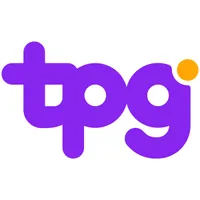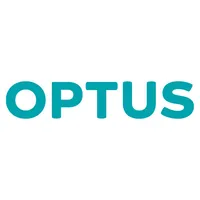The best 4G home internet plans in Australia: top providers compared
These are the top 4G broadband plans in Australia

Sign up for breaking news, reviews, opinion, top tech deals, and more.
You are now subscribed
Your newsletter sign-up was successful
The best 4G home internet plans deliver easy to setup and reliable internet to your home address. Most 4G broadband plans available in 2025 come with unlimited data, and all are serviced via a proprietary modem-router that receives a 4G internet signal from a major network (such as those operated by Telstra, Optus and Vodafone). It's a good idea for small households without serious needs for speeds.
A 4G internet plan operates a bit differently to the NBN. Unlike a standard fibre plan, 4G routers don't need to be plugged into a special port in the wall, and can instead be placed anywhere in the home provided that it has power. This gives you freedom to move it around the home, and you may find a spot where the internet works a lot better.
To be honest, it's difficult for me to recommend a 4G home internet plan to most people, given that there are so many worthwhile alternatives available. The best 5G home internet plans are the most obvious, because they offer much better speeds without a drastically higher cost. 4G plans tend to be a lot more accessible across Australia, but where you can access a 5G network, you should think 5G – as it'll provide faster website and streaming experiences.
I'd also recommend that you reconsider the best NBN plans – you might have a pretty sour opinion of the NBN due to outages in your area or a bad experiences with a particular provider, but I'd highly recommend comparing around, as you may find a more appropriate plan price and speed. If you're concerned about outages, then you may be interested to learn about the NBN fibre upgrade program to improve your internet experience. Failing that, I think you might want to check out the best NBN alternatives.
Best 4G home internet plans
Why you can trust TechRadar
The below 4G home internet plans are best suited for households where fixed NBN plans are not available or are prone to dropouts. Keep these in mind as alternatives to 5G home internet and fixed wireless NBN plans where those are not available.
Best overall 4G home internet plan
TPG | 4G home | Unlimited Data | No lock-in contract | AU$44.99 p/m (first six months, then AU$54.99 p/m)
Offering a similar typical evening speed to many other competitors, TPG is offering the cheapest 4G home internet option at the moment, with a AU$10 p/m discount spanning the first six months of your plan.
This plan includes unlimited data and an included refurbished modem, which must be returned to TPG once your plan comes to an end.
And even though typical evening speeds for this plan are advertised as 16Mbps, maximum speeds are up as high as 20Mbps, making this a perfectly fine plan for casual (non-4K) streaming and casual internet use.
Total minimum cost: AU$44.99 (incl. modem) | Total first year cost: AU$599.88 | Total yearly cost after discount: AU$659.88
Best premium 4G home internet plan
Optus | 4G home internet | Unlimited data | No lock-in contract | AU$59 p/m
Optus offers one of the fastest 4G broadband plans in Australia, with the telco reporting a 16Mbps typical evening download speed (and a 4Mbps upload).
These speeds max out at 25Mbps download and 8Mbps upload, putting this plan well ahead of many competitors.
Optus will also cover the cost of the provided modem if you remain connected for 24 months. If you cancel your plan before this time, you must pay out the modem (AU$9 for each remaining month up to two years).
Total minimum cost: AU$275 | Total first year cost: AU$708
4G home internet FAQ
What is 4G home internet?
4G home internet utilises wireless networks operated by Telstra, Optus and Vodafone. Rather than being a portable internet service as part of a phone plan, 4G home internet is intended for stationary use inside of a home and isn’t meant to be used on the go (this is the defining trait of mobile broadband).
With this in mind, 4G home internet is massively different to the NBN. Although fixed wireless NBN utilises a mix of 4G and 5G technology to service regional and rural homes with internet, 4G home internet completely skips the network serviced by NBN Co and instead goes through Australian telcos and Mobile Virtual Network Operators (MVNOs). Because there’s no fixed connection to a port in the wall of your home involved (apart from power), 4G is typically faster to set up than an NBN connection.
What are the pros and cons of 4G home internet?
Pros:
- Can be moved around the home
- A good option if you don’t have access to a fixed line NBN connection
- Competitively priced against low-speed NBN plans
Cons:
- Some plans carry low maximum download speeds
- 5G is a better choice – if you can get it
- Less modem-router choice flexibility than the NBN
What can I expect from 4G internet?
More than anything else, the main issue with 4G home internet is its reliance on mobile data. While you can plug it in anywhere, it will need to work off 4G signals. That means if you live in rural or remote areas of Australia, or in a 4G blackspot, you will find yourself running into slow or non-existent internet.
To counter this, make sure you test the mobile speeds where you live first, with a service such as Speedtest. If you find that you’re getting next to no internet there, consider signing up to an NBN plan if it’s available to you.
If you want an even faster connection, 5G home internet plans are also available. However, you will then need to be in an area where a 5G mobile tower is available. Most home internet plans are both 4G and 5G compatible, and will simply work on what is in your area.
How much are 4G home internet installation fees?
Because there is no need to have anything installed or have any engineers come around, 4G home broadband is completely free to have set up. Wherever you get your 4G broadband from, the company will send you your router and you set it up yourself.
Does 4G home internet come with data caps?
The answer depends on which provider you sign up with, and what plan you choose. Most (if not all) 4G home internet plans come with unlimited data usage, but you are likely to get a maximum download speed data cap. This is similar to the NBN, which comes with various download speed tiers.
Does 4G home internet work as well as the NBN?
Broadly speaking, 4G home internet is a solution to getting internet in your home, but it’s not perfect – especially compared to the NBN. Low maximum download speeds put it far behind alternatives such as 5G home internet and fixed-wireless NBN, making it really only a worthwhile option when these other internet types aren’t viable.
There is the benefit to being able to put the 4G modem wherever you want in your home, but on top of not getting the higher speeds of fixed-line NBN plans and the lower latency that comes with a fixed internet connection, it’s hard for 4G home internet to stack up against a competitively priced NBN plan.
We recommend looking around at NBN alternatives alongside 4G home internet plans if you’re after the best network access in your household, along with NBN plans if your home can be serviced by one.
Is a 4G home internet plan the right choice?
4G home internet is a great alternative to the NBN in situations where you may want a more reliable connection, particularly if your NBN plan is prone to outages. However, a 4G home internet plan will be much slower than 5G home internet plan, to the point where you'll likely be frustrated in your home when trying to access the internet from multiple devices.
While the fastest 4G home internet plan you'll find caps out at 25Mbps, 5G home internet plans tend to be capable of much greater speeds – up to 600Mbps on Telstra's 5G plan under optimal conditions, in fact (though you'll likely get between 50mbps and 300Mbps most of the time).
If you're in an area serviced by a 5G network, you may want to look into picking up one of those speedier plans. If you want an internet plan on the go, it might be worth picking up a mobile broadband plan.
Sign up for breaking news, reviews, opinion, top tech deals, and more.

Zac was part of TechRadar's Australian phones desk, covering the big releases from the likes of Google, Samsung and Apple. He continues to write about the Aussie EV market for this publication. He's previously written for Gizmodo Australia, Canstar Blue and The Daily Mail Australia (with articles on Nine, Junkee, Kotaku Australia and Lifehacker Australia).

